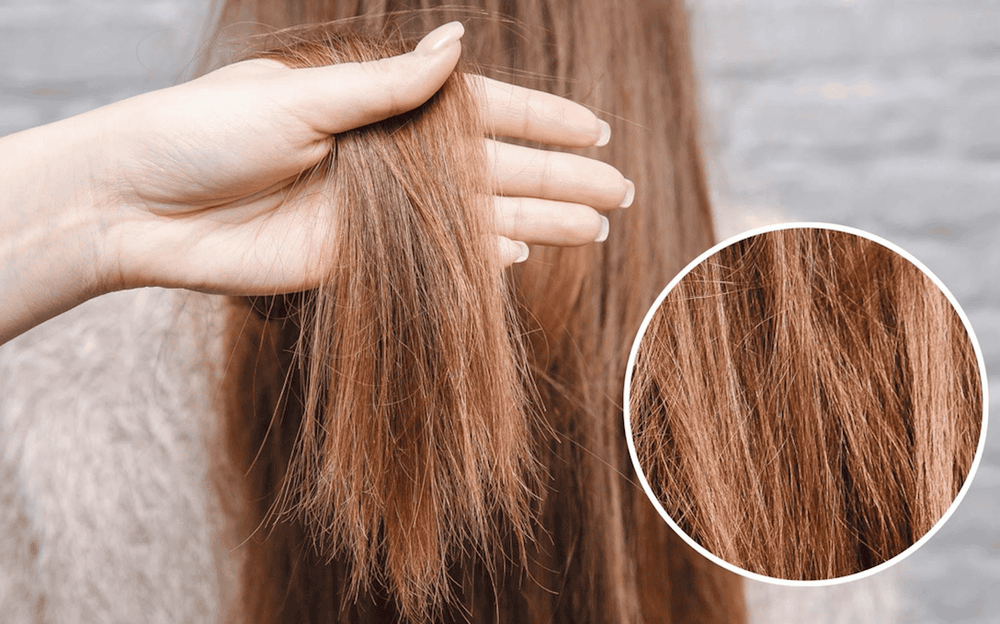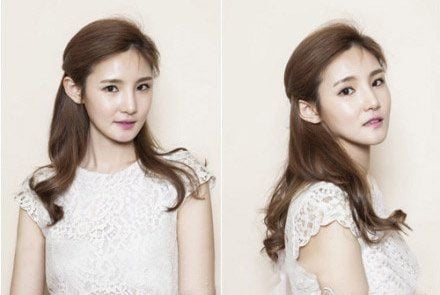This is an automatically translated article.
With the advantages of fast, convenient, suitable for both work and going out, bun, tight hair tie is a hairstyle that many women love. However, buns, tight hair ties have many potential risks to damage the hair and affect health.
1. Tight buns or ties are bad for your hair
Hair bun, tight hair tie is one of the simple, elegant hairstyles, suitable for both at home and out. Tight and high ponytail is especially suitable for summer, because it is both active and cool. However, buns, tied hair too tight often daily and tied in the same position over and over again, in addition to causing hair damage, also cause many other health effects. Some harmful effects of bun or tight hair tie can be mentioned as:
1.1. Hair loss due to tight hair ties
Hair buns, tight hair ties often pull the hair out of the hair follicle, the hair roots are also loosened and easy to break. Tying your hair too tightly can also reduce blood flow to the scalp. This is very dangerous because over time, the scalp will be affected and prevent hair growth, bald spots appear. The most common bald spots are at the temples and midline.
Studies show that hair loss due to tight hair ties is very common with people who often bun, tie their hair tightly, braid their hair, make their hair ruffled like dancers, ballet dancers, African-Americans, ...
1.2. Braided hair, tied hair tightly, causing hair to be dry and messy
Tightening your hair can damage your hair, making it dry and frizzy. Wearing a tight ponytail often, like a ponytail, also messes up your hair more than if it were left loose. Because the ponytail causes tension in the hair, for a long time, the ends of the hair get tangled together.

Buộc, búi tóc chặt dẫn tới tình trạng tóc khô xơ
1.3. Hair buns, hair ties cause headaches
When tying your hair tightly, you have to stretch the hair then use an elastic band to tie it, this action causes the nerves under the hair follicle to be stretched. Although the hair shaft is dead cells and does not feel pain, the nerves in the hair follicle are sensitive. Repeatedly tying the hair tightly will activate the nerves to become more sensitive, sending pain signals to the brain, causing headaches and migraines continuously. Tie hair causes headaches that can appear immediately after tying the hair or cause long-term headaches.
1.4. Braids, tight hair ties cause skin aging
When young, the body's collagen production is abundant, so the effect of tying a ponytail with facial skin is insignificant. However, after the age of 25, tying the hair tightly continuously will cause a part of the facial skin to be continuously stretched, when not tied, this skin will sag. The skin loses its elasticity because it is stretched a lot, accelerating the rate of skin aging.1.5. Tight hair ties cause back pain, neck pain
In addition to stressing the scalp, causing headaches, long buns or tight hair ties can cause pain to spread down the neck and back. This phenomenon often happens to people with thick hair. If this hairstyle is not restricted, the sensory nerves will gradually become more sensitive and painful.2. Tips to tie your hair safely
To limit the risk of the above mentioned harms to your hair and health, ladies, please stop immediately the hairstyles that must be tied up and tied tightly. Leave your hair loose or if tied up, just tie it very loosely and very low so that the scalp doesn't get pulled too hard.

thay vì búi hay buộc tóc chặt thì nên để xõa tự nhiên
Another note is not to tie your hair at bedtime. Tie your hair and roll it back and forth all night will put great pressure on the hair roots, causing great damage to the hair and scalp.
In addition, especially do not tie your hair when the hair is still wet, because when the hair is soaked in water, tying the hair will put more pressure on the hair and scalp than when the hair is dry. If you want to keep your hair out of your face after it's done, use a towel or a cloth headband.
Please follow the website ( www.vinmec.com ) for more information on health care instructions, which we will update regularly.













